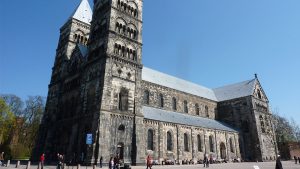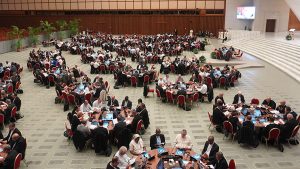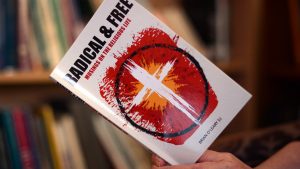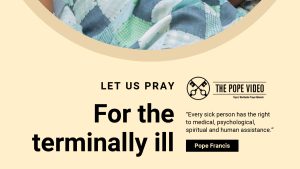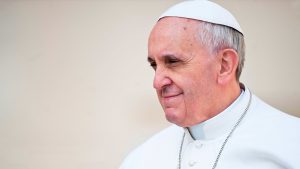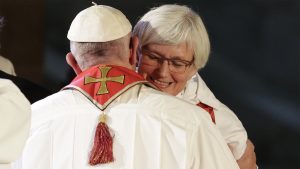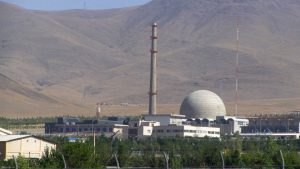Christian Unity week ends
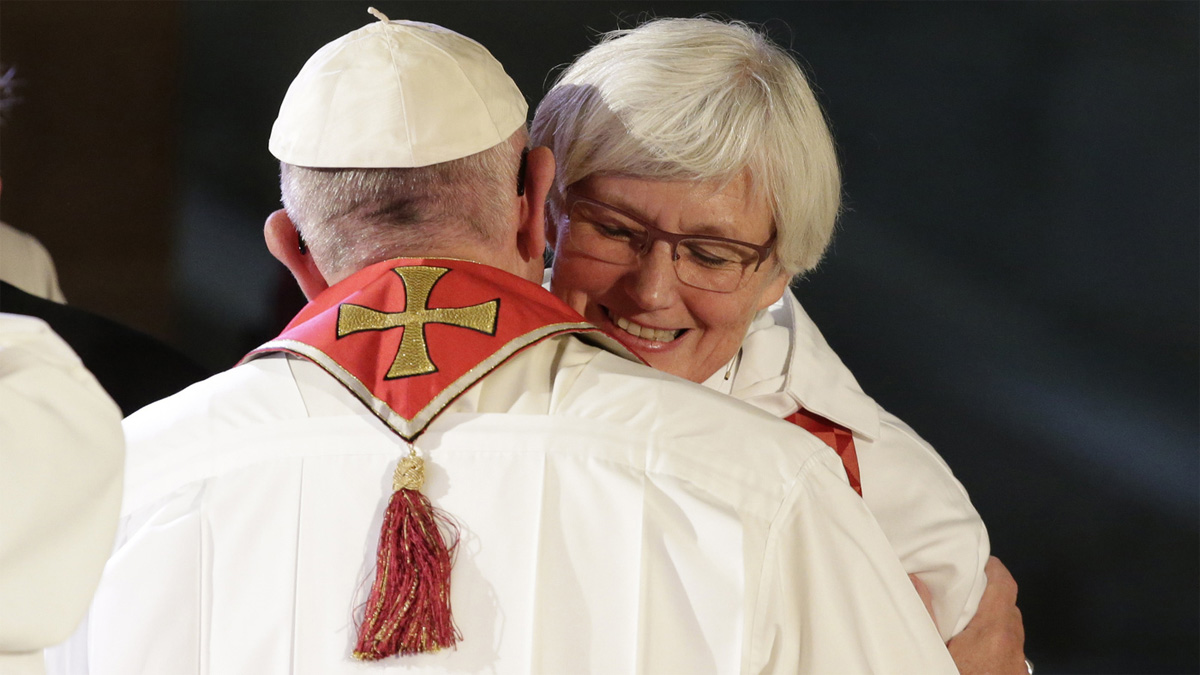
When Brian O’Leary SJ, co-ordinator for ecumenism in the Irish Jesuit Province, wrote his annual letter regarding the Week of prayer for Christian Unity, he was hopeful that the year would mark a significant and fruitful development in relationships between the Catholic and Protestant churches. In particular he cited the planned visit of Pope Francis to Lund in Sweden to commemorate the 500th anniversary of Luther famously nailing his 96 theses on the door of the Castle Church in Wittenberg. In this year’s letter to Jesuits and colleagues in the province, he notes that his hope of ecumenical progress was not ill-founded and in particular regarding that historic visit of Pope Francis and his embrace of the head of the Lutheran Church (see photo).
The German bishops from various churches who chose the theme of this years Week of Prayer, ‘Reconciliation – The Love of Christ Compels Us’, say that it was a theme influenced by Pope Francis’s Apostolic Letter The Joy of the Gospel (a.9). The current Jesuit Sacred Heart Messenger also notes that the Pope’s intention for this month of January – That all Christians may be faithful to the Lord’s teaching by striving with prayer and fraternal charity to restore ecclesial communion and by collaborating to meet the challenges facing humanity – also coincides with the Week of Prayer for Christian Unity from the 18-25 January 2017. You can read the full Messenger article here. Also read Brian O’Leary’s letter below.
—————
Dear Brothers and Friends,
This annual letter is meant to encourage a more active involvement in the Week of Prayer and a continuing commitment to the search for Christian Unity. This year our motivation could hardly be stronger as we mark the 500th anniversary of that momentous day when Martin Luther nailed his 95 theses on the door of the Castle Church in Wittenberg. This act, whether Luther anticipated it or not, has become the symbolic beginning of the Reformation. During the coming months we will hear much about that turbulent time as well as about current developments in relationships between Catholics and Lutherans worldwide.
Indeed 2017 also marks the 50th anniversary of official Roman Catholic-Lutheran dialogue which was one of the outcomes of Vatican Council II. There have been important milestones along the way. The most important was the “Joint Declaration on the Doctrine of Justification” (1999) which dealt with the core issue in dispute during the Reformation. More recently another significant agreement was reached, namely that the two churches would commemorate the 500th anniversary of the Reformation together. The document that aimed at facilitating this joint approach is entitled “From Conflict to Communion: Lutheran-Catholic Common Commemoration of the Reformation in 2017”.
Pope Francis at Lund
Pope Francis has given his official backing to this irenic procedure on a number of occasions. Most dramatically his agreeing to take part in the ceremonies in Lund on 31st October last set an example for all Catholics to follow. There he joined the leaders of the World Lutheran Federation in a service of common prayer in Lund Cathedral that effectively launched the year of commemoration. In word and symbol the service conveyed the participants’ desire and determination to forgive and be forgiven, to heal and be healed, and to offer Christ’s love to one another. Who can forget the iconic image of Francis’ embrace of Rev. Antje Jackelén, the (female) Archbishop of Uppsala and Primate of the Church of Sweden?
At the end of the service Pope Francis and Bishop Munib Younan (President of the World Lutheran Federation) signed a Joint Statement. Two passages are worth quoting, one looking to the past, the other to the future:
While we are profoundly thankful for the spiritual and theological gifts received through the Reformation, we also confess and lament before Christ that Lutherans and Catholics have wounded the visible unity of the Church. Theological differences were accompanied by prejudice and conflicts, and religion was instrumentalised for political ends.
We call upon all Lutheran and Catholic parishes and communities to be bold and creative, joyful and hopeful in their commitment to continue the great journey ahead of us. Rather than conflicts of the past, God’s gift of unity among us shall guide cooperation and deepen our solidarity.
The Irish scene
In Ireland the Lutheran church is small in membership and does not have a strong public profile. Because of this we may well find our main opportunities and challenges to be in interacting with other churches of the Reformation. After all, we are commemorating not just the 500th anniversary of the Lutheran Reformation but of the Protestant Reformation (or Reformations).The ecumenical principles to be adhered to will be the same as those articulated in Lund. Can we speak to our fellow-Christians knowledgably and empathetically about the past; constructively and hopefully about the future? Are we willing to pray together, to give witness together? Do we see this anniversary year as a unique stimulus for all the churches caught up in the Reformation to move forward towards that unity mandated by Christ?
Some brief comments
As we might expect and as is appropriate, the prayer resources that accompany this letter have been drawn up by the Christian churches of Germany.
The material they have provided places particular emphasis on commemorating the Lutheran Reformation and focusing on the pain of the subsequent deep divisions which afflicted the unity of the Church.
Jesuits played their part in fomenting the divisions and hostility of the sixteenth and later centuries. We have often been in denial about this and have much to lament.
At the same time, the
churches emphasise the importance of the ecumenical worship service for the Week. Together they see the anniversary and the Week of Prayer as an opportunity to take further steps toward reconciliation.
The overall theme is “Crossing Barriers” (with an implied reference to the fall of the Berlin wall in 1989).
The foundational scripture text for the Week of Prayer is 2 Corinthians 5:14-20.
It is unclear what a united (or re-united) Church might look like structurally, but it will be built on twin pillars: the mutual recognition of orders/ministry and intercommunion.
As per last year, here are just a few suggestions about what you might do. You may of course have other ideas of your own.
Pray for the intentions of the Week individually and as a community (e.g. during Eucharist or community prayer).
Join in the prayer of other Christians by attending one or more services in their centres of worship.
Practise hospitality by inviting other Christians into your community, e.g. to lead a community prayer, give a talk on their church tradition, or simply share a meal.
Accept any invitation from members of other Churches to do something similar with them.
Engage in a communal examen on the contribution of your community to the ecumenical endeavour in your area. This could take place during a revision de vie.
May the Spirit of Unity be active among us!
Your brother in Christ,
Brian O’Leary, S.J.,
Province Coordinator of Ecumenism


